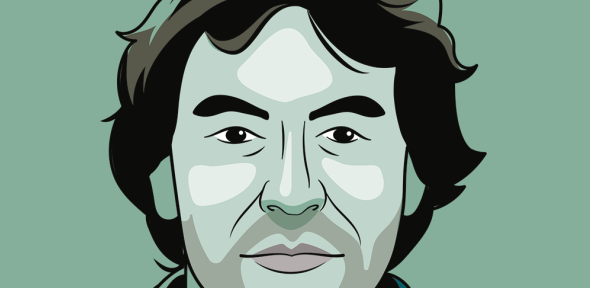Institute of Continuing Education (ICE)

Submitted by Amy Kingham on Wed, 24/11/2021 - 11:08
Field: Creative Writing
Course taught at ICE: MSt in Creative Writing, guest taught on MSt in Crime and Thriller Writing
I started out my academic interest in English literature. After graduating with a Master’s degree in literature, I moved to Japan and gained qualification as a Japanese-English translator. I spent 10 years working for a variety of Japanese organizations both in Europe and Japan before going back to study an MA in Creative Writing at UEA. I progressed straight on to a PhD in Creative and Critical Writing at UEA focussing on cats in Japanese literature. The creative element of my thesis was published as The Cat and The City by Atlantic Books in 2020 and has been translated into over 10 languages.
Writing is one of the most useful transferrable skills in life. How we are able to express our thoughts and feelings on the page is an important survival skill in and of itself. Being able to put down ideas clearly and succinctly has provided comfort and respite for our species for thousands of years. Using words well and understanding their effects is something that can be taken to any job or walk of life. The act of storytelling is a beautiful thing, and studying how to improve its various techniques is a rewarding and wonderful endeavour.
Storytelling will never be irrelevant. It’s how we relate to one another. If we don’t do it, we have no future as a species.
I like to write in cafes in busy cities, surrounded by people. I like to drink black coffee while I write, and listen to music on my noise-cancelling headphones. I’ve heard Tolstoy used to sit out in the town square to write. I’m not sure if this is true, but the more I think about it, the more I understand why I write in public. Writing is a long, lonely activity, but if you write amongst people, you will never lose sight of the fact that you are ultimately writing to connect with other people. And you must never forget that, as a writer.
Anything by Roald Dahl. Or Terry Pratchett. Or Iain Banks. Or Chaucer. Or Tanizaki. Or Chekhov. Or Kazuo Ishiguro. Or Raymond Carver. Or David Mitchell. All of these, and many, many more. If you want to write fiction, you have to read A LOT of fiction. In terms of a single book about writing, I very much enjoyed Stephen King’s On Writing.
I love the fact that reading literature allows people to connect with minds who have long since vanished from this earth. But their writing lives on, in the words on the page. Their thoughts are still alive, waiting to be read and brought to life once again. This is something I aspire to as a writer – to be able to create a piece of writing that will live on again in readers’ imaginations. I love this thought, and it makes me feel more connected to humanity.
I’ve finished a manuscript of a second novel, which is set in rural Japan. I can’t say much more about it at this stage. But I hope people get to read it very soon.
I’ve only published one book so far, The Cat and The City, but it has been beautiful seeing it translated and published into over ten languages (and counting). Each new translation feels like an entirely new book, with a new cover, and a new readership waiting for it.
My cat, Pansy, who sadly passed away recently.
Watching my students take enjoyment from improving their writing. Seeing them learn new things. I also enjoy learning new things from my students. Students of Creative Writing always have incredibly interesting stories to tell.
A professor of mine once told me, ‘There is no such thing as wasted reading.’ I thoroughly agree with this sentiment, and now extend it to the idea that, ‘There is no such thing as wasted writing.’
I like to read fiction. I love films. The cinema. Travelling. Food. Talking to people. Listening to people tell stories. Photography. Running. Going for long walks.
Find out more about Creative Writing courses at ICE.